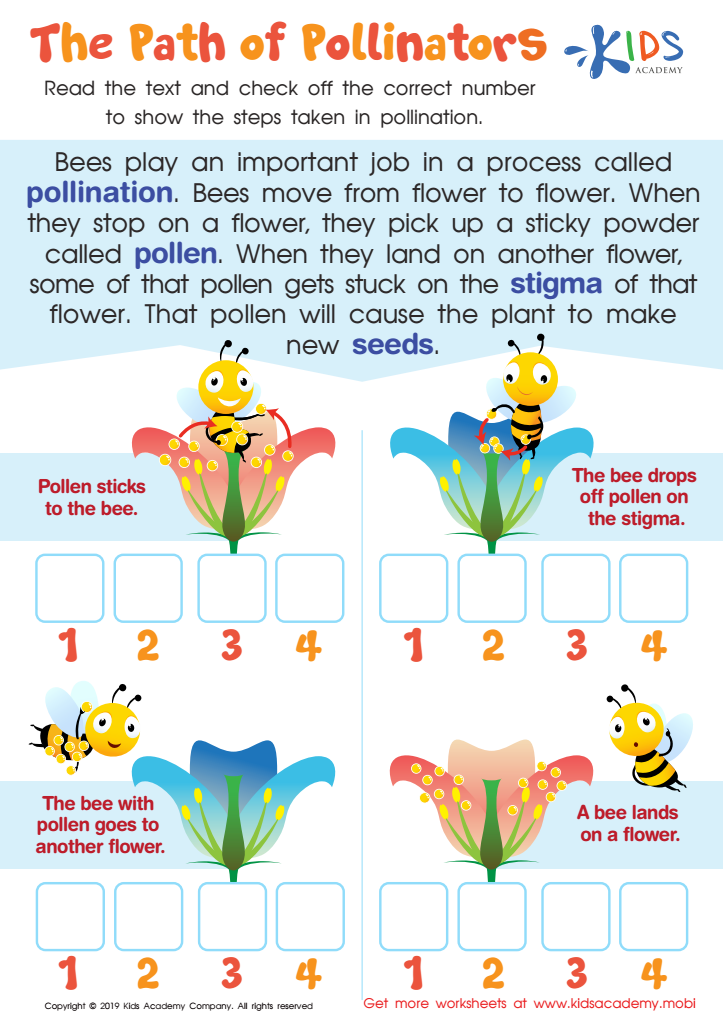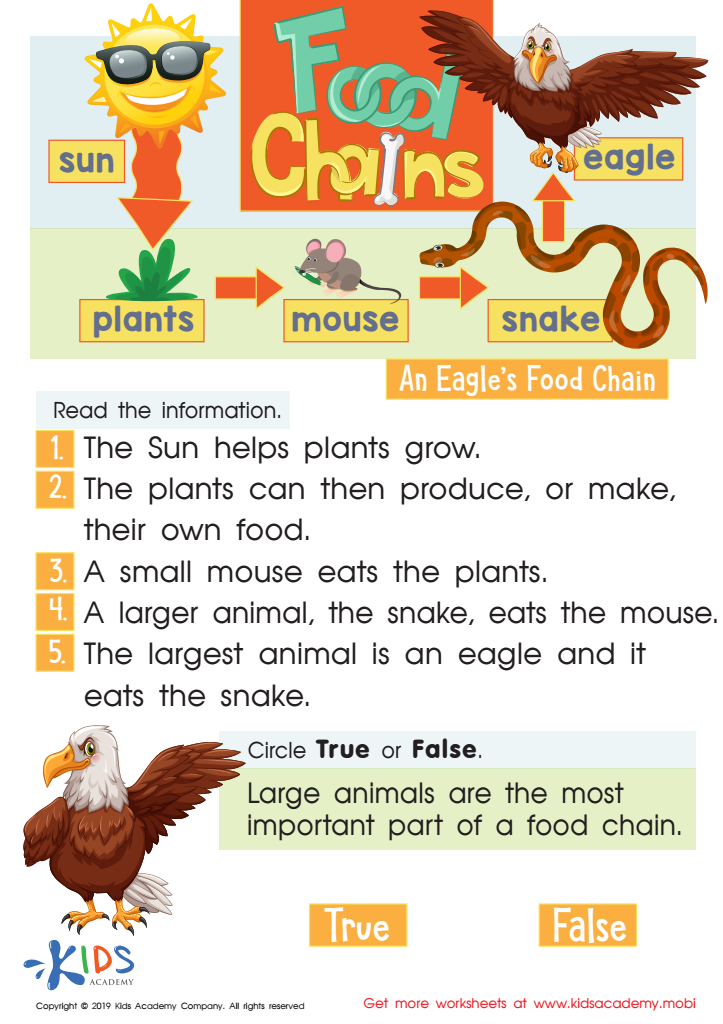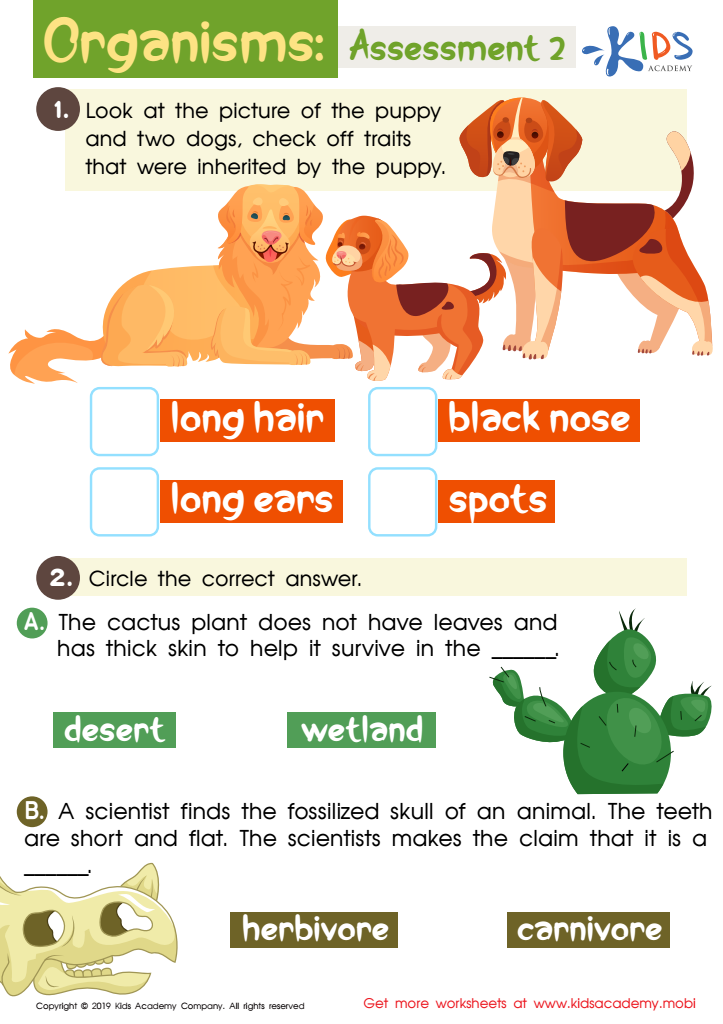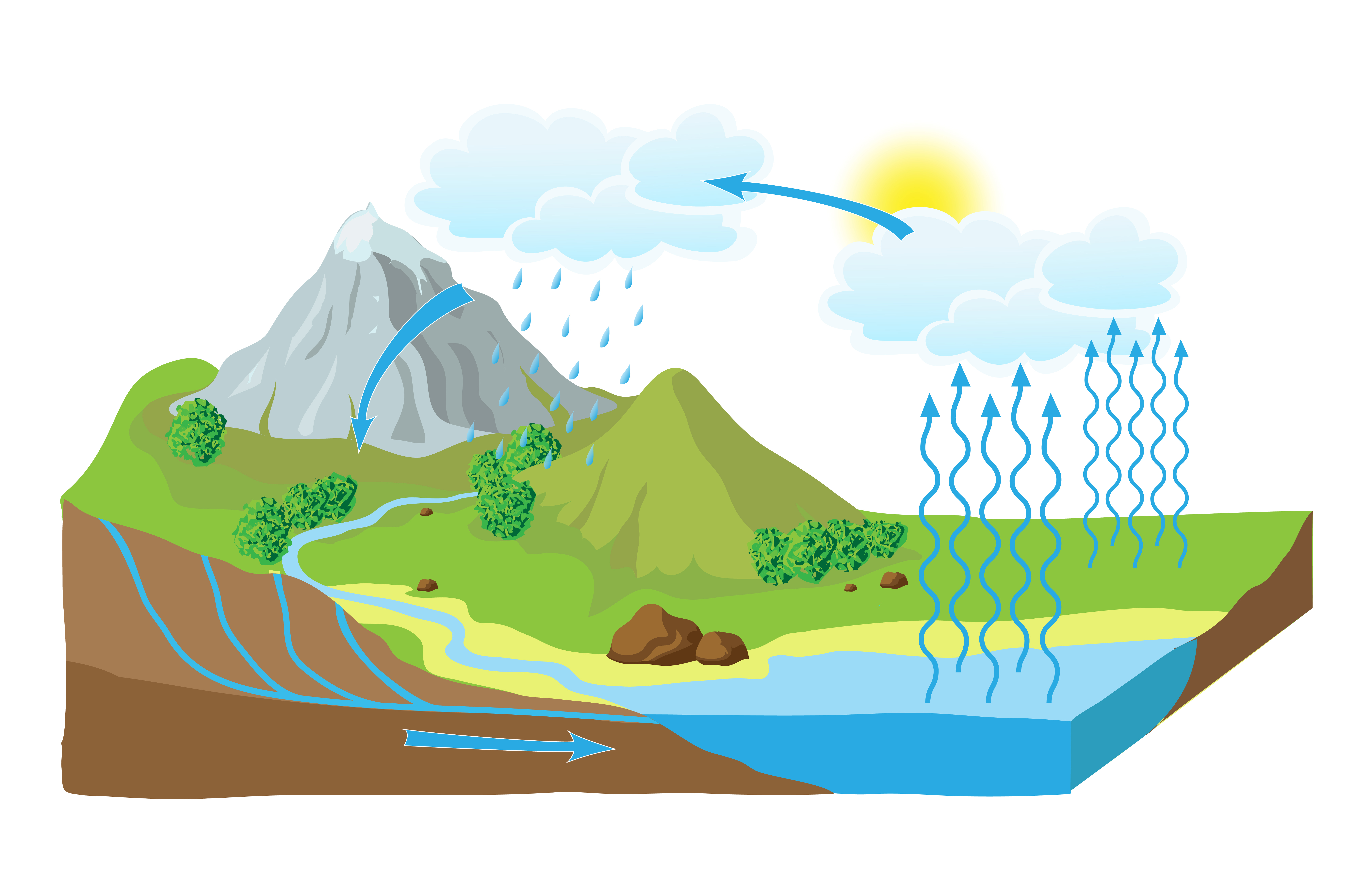Learning about ecosystems Science Worksheets for Ages 7-9
4 filtered results
-
From - To
Discover the wonders of ecosystems with our engaging science worksheets designed for children ages 7-9! These resources encourage young learners to explore the intricate relationships between living organisms and their environments. Each worksheet is crafted to enhance critical thinking and spark curiosity through fun activities, insightful illustrations, and interactive exercises. From identifying various ecosystems to understanding food chains and the importance of biodiversity, our materials align with educational standards, making learning both effective and enjoyable. Perfect for classrooms or at-home learning, these worksheets will ignite a passion for science and foster a deeper appreciation for the natural world. Start your exploration today!


Pollinator Positions Worksheet


The Path of Pollinators Worksheet


Food Chains Worksheet


Organisms: Assessment 2 Worksheet
Understanding ecosystems is crucial for children aged 7-9 as it lays the foundation for their awareness of the natural world. At this age, children are naturally curious about living things and their environments. Learning about ecosystems helps them appreciate the interconnectedness of plants, animals, and their habitats. This understanding fosters a sense of responsibility towards the environment, encouraging children to develop positive attitudes toward conservation and sustainability from an early age.
Teachers and parents play a vital role in nurturing this learning process. Engaging children in ecosystem science sparks their curiosity and critical thinking skills. Hands-on activities, such as outdoor observations and experiments, make science real and relevant, enriching their educational experience. Furthermore, discussions about ecosystems can enhance literacy skills through the integration of vocabulary and storytelling about nature.
By instilling awareness of ecosystems, adults can cultivate environmentally conscious future citizens who recognize the importance of biodiversity. Encouraging exploration and scientific inquiry about ecosystems during these formative years can inspire a lifelong passion for the Earth and its preservation. Ultimately, caring about ecosystem science empowers children to make informed decisions about the environment, ensuring a more sustainable future for all.
 Assign to My Students
Assign to My Students















